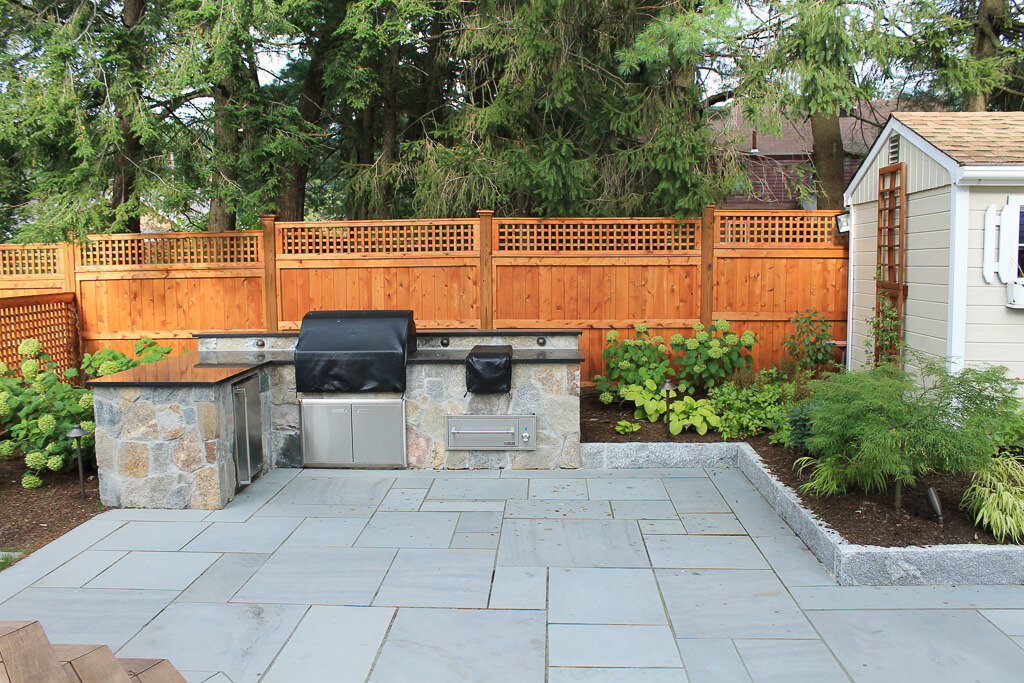How to Choose the Right Fence Material for Your Yard

Choosing the right fencing for your home can be a challenge and homeowners are often unsure of which type of fencing will meet their short-term and long-term needs. While one type of fence may be more aesthetically pleasing for you than another, there are a variety of factors you should consider before making a decision:
Step 1: Determine Your Fencing Needs
What are the primary qualities you are looking for in a fence? These might include:
· Privacy
· Keeping dogs or other pets contained in the yard
· Type of fencing (pool, garden, veranda, yard, etc.)
· Aesthetics
· Level of maintenance required
· Longevity
· Increasing the value of the home
· Budget
It’s best to prioritize your needs. For example, if you’re desiring privacy but also want a certain aesthetic (i.e. picket fence), you may need to determine which is more important to you. One way to do this is to first consider what you need in a fence, and then to consider what you want in a fence.
The type of fencing can also have a direct impact on a home’s value. If you’re considering selling in the next few years, it might be worth it to invest more in a high-quality fence that ups the home’s curb appeal. In cases like these, aluminum, wood, or vinyl fencing would be an improvement over chain-link fencing, which would be a benefit in the long-term even if they have higher up-front costs.
Step 2: Consider Neighborhood Trends/HOA Requirements
Considering fencing types within a neighborhood and HOA/POA requirements. While you may have a specific type of fencing in mind, you may need to get approval from the HOA or from your local city council to install a specific type of fencing. Fencing requirements vary from town to town.
When considering neighborhood trends, you’ll also want to think about how your fencing choice fits in with the rest of the houses on the street. If, for example, the majority of your neighbors have tall privacy fences it might be worth considering how you can maintain a sense of uniformity in the neighborhood. Likewise, if the neighborhood is predominantly 4ft chain link fences and you’re selecting a 6ft cedar privacy fence, your new fence could look out of place which could impact the value of your property in the future.
Step 3: Determining if You DIY or Hire a Contractor
To save on costs, many homeowners with home improvement skills may choose the Do-It-Yourself route. It’s important to do an honest assessment when determining whether to put the fencing up on your own or bring in a contractor.
Fence installation takes time, knowledge (or good-old-fashioned trial and error), and personal energy. For smaller fencing installation projects, DIY might be the way to go, while larger fencing projects in private or commercial properties could benefit from the expertise and experience of a professional fencing contractor.
Your contractor will work with you to determine what you’re looking for in a fence, assess city and HOA requirements to ensure that everything is up to code, check property lines with the local city government, and complete your installation quickly and painlessly.
If you’re looking for fence installation services in the Boston area, Fensu, Inc. can provide you with more information related to fencing selections and provide you with a quote for installation costs.
Give us a call at (781)-330-0001 or visit our Contact page for more directions to our office or to fill out an online general inquiry.
Hristofor Dimitrov
CEO
Fensu Inc.





